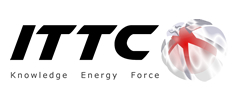Virginia’s Payday and Title Lending Markets On The List Of Nation’s Riskiest
Policymakers can turn to other states’ experiences to modernize laws that are small-loan
- Dining dining Table of articles
Americans from all parts of society usage payday and automobile name loans, and so they do this typically to cover recurring expenses such as lease, mortgage repayments, food, and resources, instead of for unforeseen costs. 1 merely a bank checking account and verifiable income are needed seriously to get an online payday loan; 2 an obvious name to an automobile is generally expected to get yourself a title loan.
Lenders problem these loans to thousands and thousands of Virginians every year. And also this high-cost credit carries several of the most borrower that is lax in the nation because loan providers running into the state make loans relating to some of four statutes, two of which enable limitless interest levels. 3 (See dining Table 1. ) Because of this, Virginia residents pay as much as three times more because of this kind of credit than borrowers in other states, also people who have loans through the exact same businesses. 4
Other states, such as for instance Colorado and Ohio, have modernized laws that are small-loan make credit less expensive while maintaining it widely accessible. 5 Virginia could follow their lead to higher protect borrowers from harmful loan terms. (See Dining Table 2. )
Payday and name loans damage Virginians
Virginia’s small-loan statutes have actually unusually consumer that is weak, weighed against other regulations all over country. As a total outcome, Virginia borrowers frequently spend a lot more than residents of other states for loans and suffer harmful results, such as for example car repossession and costs and interest that exceed the amount they received in credit.
- 1 in 8 name loan borrowers in Virginia has a car repossessed every year, among the highest that is nation’s. 6
- Loan providers sell 79 % of repossessed vehicles in the continuing state because borrowers cannot manage to reclaim them. 7
- Numerous loan providers run shops and on the web in Virginia without licenses, issuing credit lines much like charge cards, however with rates of
 interest which are usually 299 % or more, plus charges. 8
interest which are usually 299 % or more, plus charges. 8 - Virginia is certainly one of just 11 states without any cap on rates of interest for installment loans over $2,500. 9
- Virginia doesn’t have rate of interest restriction for personal lines of credit and it is certainly one of just six states where payday loan providers use this kind of unrestricted line-of-credit statute. 10
- Virginia guidelines make it possible for loan providers to charge Virginians as much as 3 times up to clients various other states when it comes to type that is same of. 11
- Significantly more than 90 % associated with the state’s a lot more than 650 title and payday loan shops are owned by out-of-state businesses. 12
Virginia can balance affordability and use of credit by modernizing its laws that are small-loan
In 2018, Ohio lawmakers replaced harmful payday and loans that are title affordable installment credit at reduced rates. Quotes associated with the ensuing cost cost savings to Ohio families top $75 million yearly, which dates back into the state’s economy. 13 And usage of credit continues to be widely accessible in Ohio from a huge selection of licensed providers, with brand brand new competition from lower-cost loan providers. 14
Ohio’s Fairness in Lending Act of 2018 requires lenders to offer borrowers time that is sufficient repay in equal installments, with re payments trying out just a tiny share of borrowers’ paychecks. 15 underneath the work, any loan released in breach of state law, whether originating online or in shops, is null, void, and uncollectible, as well as the attorney general is empowered to enforce this supply.
In Colorado comparable reforms, enacted this year, yielded commensurate outcomes, with reduced rates, affordable payments, and reasonable times to settle. 16 shops into the state doubled their effectiveness, to about 1,100 unique borrowers per 12 months. 17
Borrowers in these along with other states with sensible small-lending regulations never have turned in great figures to unlicensed loan providers. 18
With wise reforms like those who work in Ohio and Colorado, Virginia policymakers can lessen prices for their constituents, producing affordability for borrowers and a viable marketplace for loan providers, including lower-cost providers that currently avoid operating into the state due to its outdated rules, 19 and saving families significantly more than $100 million yearly. 20
